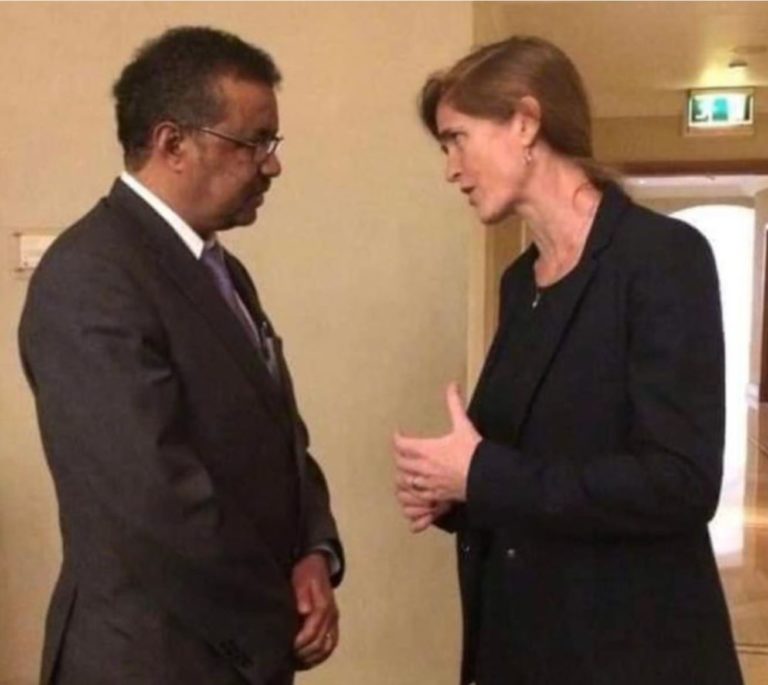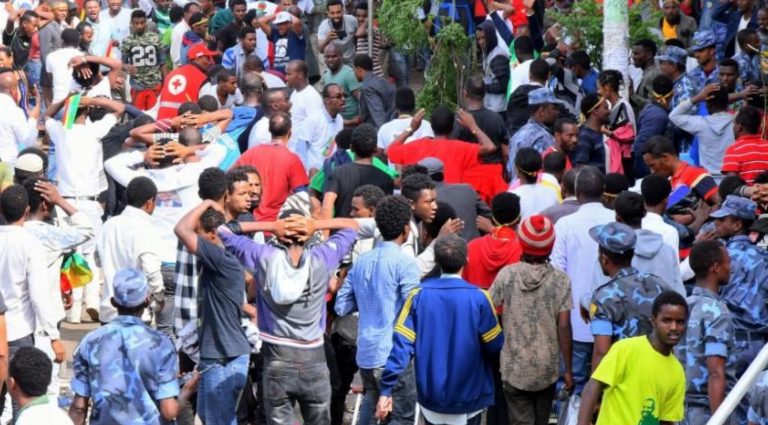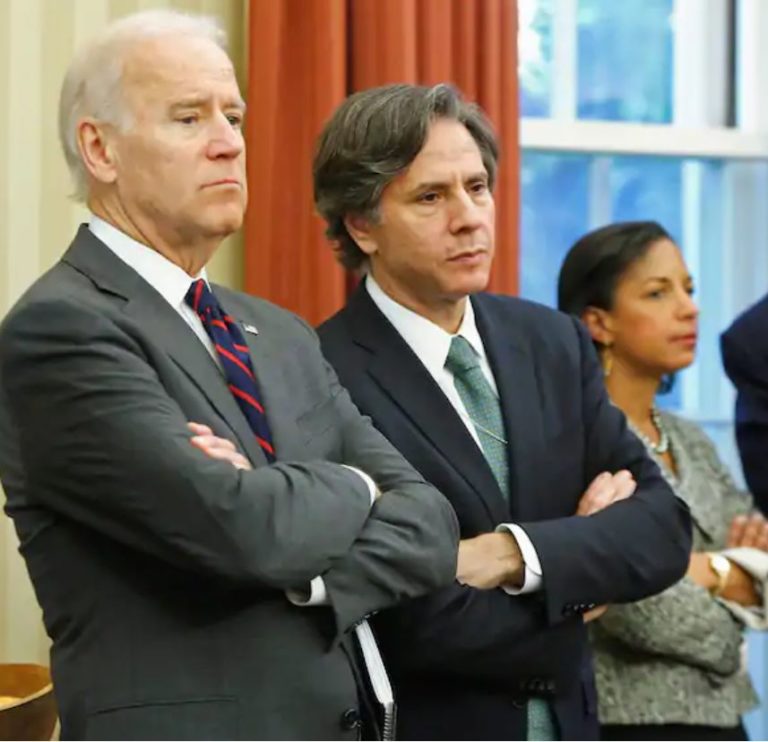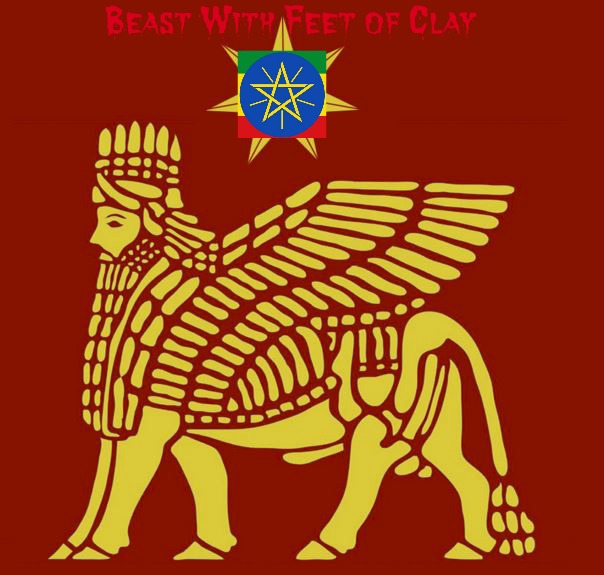Ethiopia: Much ado about nothing
[Author’s Note: This post first appeared in Ethiomedia on April 21, 2008 as an “editorial” without a byline. (Ethiomedia Editor’s Note – Ethiomedia will offer periodic editorial commentary on the role of the press, media and the vital necessity of free expression in sustaining democratic dialogue in Ethiopia.]
Dateline Ethiopia. April 2008, “Election”. The insufferably meaningless election ritual is now almost over. But for a few more days, we’ll have to put up with the regime’s self-congratulatory blabber and vacuous sloganeering about Ethiopia’s unstoppable march on the road to democracy. Mercifully, in another week or so, no one will even remember there was an “election” in Ethiopia in 2008.
Why do we say the “election” was a meaningless ritual? Because it was a ceremonial election about nothing. No one knows what the “election” was about. Ethiopians don’t know. Even those who stage-managed the make-believe elections don’t know. So we ask simple questions of our readers:
Was the “election” about the galloping inflation, skyrocketing food and fuel prices and economic devastation in the country, and the people who were lining their pockets as millions suffered silently?
Was it about the famine that is now voraciously consuming one-fifth of the Ethiopian population, while those in charge stand by idly and indifferently calculating that they can dodge this famine, like many others before, using their expert skills in international panhandling?
Was it about the Meles Kleptocracy, its rampant corruption and plunder of the public treasury, and the total lack of accountability for the Kleptocrats?
Was it about millions of dollars worth of gold bars that walked straight out of the bank — in broad daylight without anyone noticing — never to be seen again?
Was it about the worst educational system in the world (only 33% of boys and less then 20% girls are enrolled in school in Ethiopia)?
Was it about one of the worst health care system in the world (only about 20% of Ethiopians have any access to some form of primary care, one physician for every 40,000 people, one nurse for every 14, 000 people)?
Was it about the lack of access to clean safe water (only 24% of the total population has access to clean and safe water)?
Was it about the reckless intervention in the Somali civil war, the squandered resources, wasted young lives and hopeless quagmire in Somali clan politics?
Or was it about massive human rights violations by the regime and its repudiation of the rule of law?
Was the “election” about a contest of ideas, competing visions for the future of Ethiopia and its people?
Was it about any issues facing Ethiopia now, or in the future?
Was the “election” a referendum on the MelesKleptocracy, Inc.?
Was it about giving the people of Ethiopia a chance to express their true feelings and make genuine choices about their leaders and their future that reflect their true sentiments and sensibilities?
We do not believe the “election” had anything to do with things that are important to the Ethiopian people. That’s why we say the whole thing was a meaningless ritual.
But that’s not all! We also believe the “election” was meaningless because its outcome will not make a difference worth a hill of beans in the lives of Ethiopians. Again, we ask simple questions of our readers. Will the regime’s “election” victory lead to the
- Release of the hundreds of thousands of political prisoners still in detention without trial?
- Prosecution of torturers, murderers and other human rights abusers?
- Establishment of the rule of law?
- Agricultural production that will insure minimal food security for the people? Reduction in food and fuel prices?
- Protection of human rights and respect for “constitutional” rights?
- Establishment of an independent judiciary so that justice is administered fairly?
- Protection of freedom of speech and of the press, and release of independent journalists from detention?
- Free functioning of civil society organizations?
- Delivery of better educational and health care services?
- Withdrawal of military forces from Somalia?
We do not believe the “election” will make any difference in the lives of Ethiopians. That is why we have concluded the April, 2008 “election” in Ethiopia was about nothing. It was the BIG NOTHING ELECTION OF 2008! Because the “election” was about nothing, we condemn it as a travesty of elections, a caricature of democracy, a parody of democratic principles and practices and a shameless mockery of popular sovereignty.
Dateline Ethiopia. May 2005, Elections. We believe we have a duty to prove what it means to have a real election. There are “elections”, and there WERE elections! In 2005, there were REAL elections. The May, 2005 elections were real because they were about issues, choices, and a fierce competition of ideas and visions. Those elections were fundamentally a referendum on the Meles/”EPDRF” regime. The single question put before the Ethiopian voters was: “Do you want to keep Meles and his criminal gang in office any longer?” The peoples’ response, heard around the world, was a deafening crescendo of “NO! NO! Hell, NO!”
Because the 2005 elections were real, there were real opposition parties who campaigned robustly against the decadent and corrupt regime. There were free and open debates in the print and electronic media. The private free press challenged the dictators. Civil society leaders worked tirelessly to inform and educate the voters and citizenry about democracy and elections. Voters openly and fearlessly showed their dissatisfaction and contempt for the regime in public meetings. In the end, the opposition won. The CUD kicked butt like nobody’s business! But the beauty of the 2005 elections was that at the end of the day on May 15, the voters did something that had never been done in recorded Ethiopian history. They used democracy to clean house. They took the ballot broom and cleaned out trash that had accumulated for 15 years. That was a lesson in real elections!
Enough of make-believe games. We need to face facts! The regime’s primary mission is not managing a real election, or even staging a make-believe one. Its primary mission is to protect its power and privilege at all costs; and to do so, it must keep the opposition weak and deeply divided. By putting up a bogus election, the regime hopes to distract the population and opposition political parties from the overwhelming social and political problems facing the country, while trying to rip-off more handouts from the international donor community.
In the meantime, we observe in dismay that some in the opposition have played right into the hands of the regime when they agreed to compete and then suddenly withdrew at the last minute or in the first phase of the “elections” because they had discovered “the whole (election) process is an illegal process”; or determined that they “have to quit and show the world (they) are not able to work with them (regime).” No doubt, the regime will cleverly use such quirkiness and indecisiveness to prove to the international community that significant elements in the “opposition” are confused and muddle-headed, and/or are amateurish and do not know what they want. Such behavior does not speak well of some of the opposition.
It is time for all Ethiopian pro-democracy forces to wake up and refuse to be pawns in the regime’s game of “elections”. We must all understand that unless we consciously strive to build unity across ethnic, political and ideological lines and oppose the Meles dictatorship, we will have only marginal influence on what is happening in Ethiopia. There have been some recent calls to establish a movement in the tradition of human rights to accomplish unity and engage in collective action. We fully support such efforts because the foundation for justice, equality and democracy is respect for human rights.
Afterthought. There is no need to get all worked up about Meles’ “election!” It’s much ado about nothing. Meles knows (and we know) that the whole “election” thing was make-believe, play-acting, a game, a charade, a prank. After all, Meles set up the elections in April. We wish all Ethiopians a happy Belated April Fools Day!






